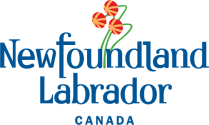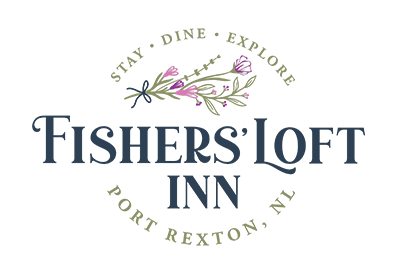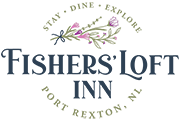Tips & Info For A Great Trip
Climate
Eastern Newfoundland enjoys a moderate four-season climate. The cold Labrador Current and the warm waters of the Gulf Stream meet on the Grand Banks in the North Atlantic just off the coast of the Newfoundland. In addition to producing some of the most nutrient rich waters in the world, this combination also results in plenty of fog at certain times of the year. With our location in the middle of the North Atlantic, one can experience extremes of ‘weather’ in a short period of time. In fact, locals will tell you that if you don’t like the weather, just “wait a minute, it will change”. Surprising to many is the fact that St. John’s has the 3rd most temperate climate of all cities in Canada (behind Victoria and Vancouver). Summer days in the city and region are usually warm and we almost always have an ocean breeze. We very seldom experience the humidity that goes with summer heat in central Canada or the northeastern United States. Our summer evenings can be cool; carrying a sweater is a good idea.
Average Temperatures
St. John’s and the Eastern region enjoy a temperate marine climate with few extremes in temperature.
May – Still quite cool yet the sun is warm.
Day 0 to 5 C/40 to 59 F
Night -5 to 0 C/23 to 32 F
June – Pleasant and sunny.
Day 10 to 20 C/50 to 68 F
Night 0 to 10 C/32 to 50 F
July & August – Enjoy your usual summer activities without the humidity.
Day 20 to 30 C/68 to 86 F
Night 15 to 20 C/59 to 68 F
Sept. & Oct. – Moderate afternoons and cool evenings.
Day 10 to 20 C/50 to 68 F
Night 0 to 5 C/32 to 59 F
Suggested Wardrobe
Summer
Pack lightweight clothing with a sweater, raincoat or light topcoat for cooler evening temperatures (temperatures by the ocean are always a little cooler). To enjoy the many outdoor activities and natural beauty of Eastern Newfoundland, we recommend good walking or hiking shoes.
Spring and Fall
Weather during these in-between seasons can be unpredictable. A warm jacket and clothing that can be layered is recommended.
Fishing & Hunting Licenses
The provincial Department of Forest Resources and Agrifoods issues freshwater fishing licenses at various outlets throughout the province such as sporting goods stores, marinas and bait and tackle shops. The federal Department of Fisheries issues saltwater fishing licenses at the same outlets. Newfoundland and Labrador has some of the best big game hunting in the world, with moose, caribou and black bear featured. There is no hunting within national and provincial parks in the province. For information on hunting and fishing licenses, regulations and operators, please contact:
Department of Environment & Conservation
Inland Fish and Wildlife Division
P.O. Box 8700
St. John’s, NL A1B 4J6
(709) 729-2630 or 639-2025

Metric System
Canada uses the metric system for weights, measures and distances.
How to Convert Between Metric and Imperial
Distance/Speed
1 kilometre (km) = 5/8 mile
50 km-h on road signs = 30 mph
100 km-h on road signs = 60 mph
To convert kilometres to miles:
1 km x .6 = approximate mileage
Weight
1 kilogram (kg) = 2.2 lbs.
500 grams (g) =1.1 lbs.
To convert kilograms to pounds
Multiply kg x 2.2 = lbs.
To convert grams to ounces
Multiply grams x .035 = ounces
Temperature
Canada uses the Celsius Temperature scale where the freezing point of water = 0ºC.
To convert between Celsius and Fahrenheit:
F = (1.8 x C) + 32
C = (F-32) x 0.55
Buying Gas and Other Liquids
3.8 litres = 1 U.S. gallon
1 litre milk = 1 quart
Sales Tax
A 15% Harmonized Sales Tax (HST) is applied to most goods and services in Newfoundland and Labrador. In addition, in the City of St. John’s only, there is a 3% Tourism Marketing Levy (TML) applied to all accommodations.
Alcoholic Beverages
Visitors 19 years of age or older may bring into Newfoundland and Labrador, duty-free, either:
- 1.1 litres (40 ounces) of liquor or wine or
- 24 x 355 ml. (12 fl.) cans or bottles of beer or
- ale or their equivalent (8.5 litres)
Duty and taxes, plus provincial fees at the port of entry, apply to any additional alcoholic beverages up to a maximum of nine litres.
Firearms
Canada has strict laws regarding the possession and use of firearms. Before bringing guns to Canada for hunting purposes or competitions, please contact the Canadian Firearms Centre at 800-731-4000 (Canada and the US or 506-624-5380 for other countries) to obtain the most up-to-date information on current legislation. Canadian law prohibits all handguns and automatic weapons from entry into Canada.
Health Insurance
Visitors to Canada should obtain travellers’ health insurance before leaving home. Most health insurance coverage does not extend outside the country of residence. Visitors may find they have either no health insurance or inadequate coverage when in Canada. Daily rates for hospital care can vary from hospital to hospital and from province to province, but a hospital stay can cost in excess of $750 per day. Visitors requiring prescription medication should bring a copy of the prescription for renewal in Canada.
Moose
Approximately 125,000 moose inhabit the island of Newfoundland and most of our highways go through moose habitat. Moose are dangerous to motorists. If you see one on or near the highway, slow down immediately and prepare to stop. Like all wild animals, moose are unpredictable. Avoid driving at night if possible, and if you must drive, slow down. Pay attention to warning signs. A road sign like “Caution, moose next 11 kilometres” means moose cross there frequently.
Wheelchair Accessibility
Establishments listed as “wheelchair accessible” meet the minimum requirements set out in the provincial Buildings Accessibility Act and Regulations. These establishments have a main entrance, and, where provided, public washrooms that an individual in a wheelchair can access unassisted. Hotels/motels with the accessibility designation have a wheelchair accessible room or suite, but there are no guarantees wheelchair users could access all the establishment’s attractions.
Gifts
Friends or relatives living in Canada may receive gifts, duty and tax-free, from visitors or by mail, if the value of each gift does not exceed $60 (Canadian funds). Tobacco products, alcoholic beverages or advertising material may not be sent as gifts.
Currency & Banking
Canadian dollars and cents form the monetary system in Canada. Although the operators of many retail outlets, restaurants, and other venues may accept American money, we recommend that visitors exchange their travelllers cheques or cash for Canadian currency before they leave home. There is no currency exchange house in the province of Newfoundland and Labrador. Some banks charge a fee to cash travelllers cheques. Normal banking hours are typically Monday to Friday, 10 a.m. to 4 p.m., with extended hours at some locations. Automated teller machines marked with the Plus or Interac symbol will accept automated banking cards from outside Canada. Banks charge a fee of $2 for international transactions. Each bank sets an exchange rate. Most venues will accept major national or international credit cards for payment.
Hospital / Medical Services
Canadian hospital and medical services are excellent. Newfoundland hospitals will not refuse treatment to those requiring care, regardless of their financial status or health care coverage.
Pets & Animals
Visitors may bring cats, dogs or horses to Newfoundland without a permit, and they can be moved freely around the province. However, the importation of non-indigenous animals and the movement of Labrador Huskies from Labrador to Newfoundland is restricted. If you have any questions about bringing animals to the province, please contact:
Department of Natural Resources
Animal Health Division
P.O. Box 7400
St. John’s, NL A1E 3Y5
(709) 729-6879/6886
Note: There are no skunks, snakes, poison ivy or poison oak on the island of Newfoundland.

Customs / Entry Regulation
Citizens or legal permanent residents of the United States do not need a passport or visa to enter Canada but must carry proof of citizenship. However, as of January 2007, they do need a valid U.S. passport or other secure travel document such as a NEXUS air card when used at a NEXUS air kiosk when returning to the United States by air. People visiting from other countries or from the United States who are not U.S citizens or permanent residents require a valid passport and possibly other documentation. Since obtaining travel documents outside Canada can take time, it is important to check with the nearest Canadian Consulate, Canadian Embassy or High Commission well in advance of a trip to Canada.
Tobacco Products
Persons 19 years of age or over may bring into Newfoundland, duty-free, 50 cigars, 200 cigarettes and 400 grams of manufactured tobacco. Federal duties and taxes apply to additional quantities.
Duty-Free Shopping
Duty-free shop is located at the St. John’s International Airport to sell tax-free items to departing international visitors. Please check with customs officials for questions regarding restrictions, licenses or controls.
Liquor Laws
The legal minimum age to purchase or consume alcohol in Newfoundland and Labrador is 19. Most clubs and lounges in the city of St. John’s are open until 3 a.m. (based on customer volume).
Soil & Plants
Neither soil nor plants bearing soil may be removed from Newfoundland due to the possibility of accidentally spreading soil-borne diseases. Vehicles leaving Newfoundland are inspected at the ferry terminals, and soil and plants are subject to confiscation. Special permits for removing plants under strict conditions may be obtained from the Canadian Food Inspection Agency telephone (709) 772-4424 for further information.
Traveling With Children
Customs officials are on the lookout for missing children. Parents or guardians traveling with children require a proof of citizenship for that child plus consent from both parents. If a child is traveling with one parent or guardian, a letter of consent from the absent parent must accompany the child.
Baggage / Recreational Equipment
Visitors can bring non-restricted sporting goods and personal baggage into Canada, duty and tax-free, by declaring them on arrival to customs officials. Register the serial numbers of equipment such as cameras, bicycles, etc. with Canada Customs.



